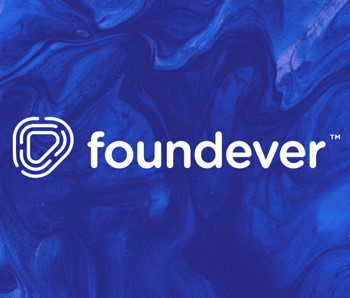This week it was announced that Facebook bought the virtual reality wunderkind Oculus VR for 2 billion dollars.
Oculus VR makes the Oculus Rift, an immersive, 3D gaming headset currently only available to game developers. And though Facebook has stated that Oculus VR will continue to operate largely autonomously, Mark Zuckerberg has much more ambition for the Oculus Rift headset than just videogames. As he wrote, “Imagine enjoying a courtside seat at a game, studying in a classroom of students and teachers all over the world or consulting with a doctor face to face — just by putting on goggles in your home.” Sounds pretty great to me—I could get season tickets to my favorite teams and never leave the couch! (Though I’d have less of a chance of catching a fly ball.)
The acquisition of one company by another provides a logical opportunity for rebranding, and indeed a report has been leaked that the social media giant plans on redesigning the hardware and even giving Oculus Rift’s interface and logo a Facebook makeover (a Face-lift?). Which led me to wonder, might they want to change the name as well?
Thankfully, Facebook was quick to release a statement denying any plans to rebrand the device. However, I still want to take the time to talk about the name, because “Oculus Rift” might just be the perfect name for a virtual reality gaming system, ever.
Employing two real (though uncommon) English words previously not collocated, Oculus Rift captures the elusive quality of simultaneously being oddly recognizable and yet wholly unique. As far as the literal meaning goes, Oculus is an obscure architectural term meaning an eye-like aperture or window. Because most people don’t know the term aside from guessing that it has something to do with eyes or vision, Oculus VR is able to imbue the word with meaning and feelings of their own, like awe and excitement. (By the same token, a name like “Vision Rift” would fall flat as the word “vision” has less connotative room to be filled with awe or excitement.) The word “Rift,” meaning a break or split, gives the name edginess and even a hint of danger. Overall, Oculus Rift suggests a schism not just from previous gaming technology but from previous ocular reality altogether.
Oh, and there’s also an internal rhyme between the last syllable in Oculus and the “i” in Rift that subtly adds catchiness to the name. And, the stress on the first and fourth syllables work like bookends, making the name forceful and conclusive.
Despite all of this, are there reasons why might Facebook want to change the name? Well, yes. Oculus Rift is the perfect name for this new technology intended for gamers, geeks, and people who don’t care about being seen wearing a giant box over their face. But, if Facebook’s plans for the device pan out and it becomes a place for socializing and shopping, and they want consumers to incorporate the device into their daily life, they may not want an edgy, science-fiction-y name that reads, “Futuristic unheard-of experience that you have to be a daring, hard-core gamer to try!” but rather, “This is normal for everyone to use every day.”
I’m guessing that in the future they will keep the Oculus Rift device as is, and as promised, and also release a different version, targeted at general Facebook users, with a new look and new name (something like FaceLook or Facebook Glass…kidding!). For now, long live the Oculus Rift!
Grade: A+





